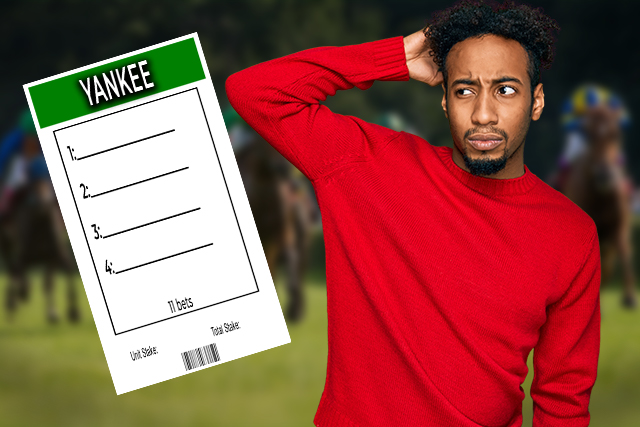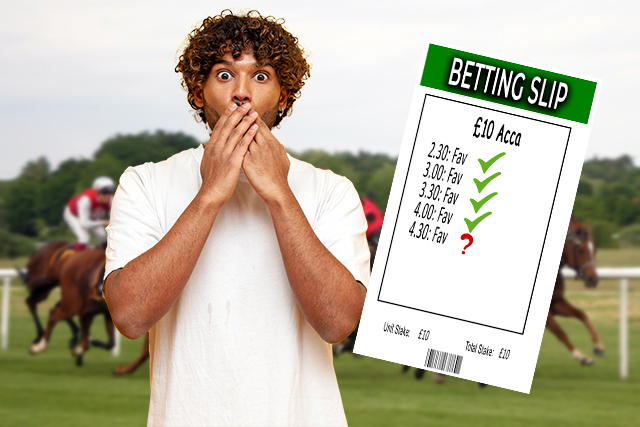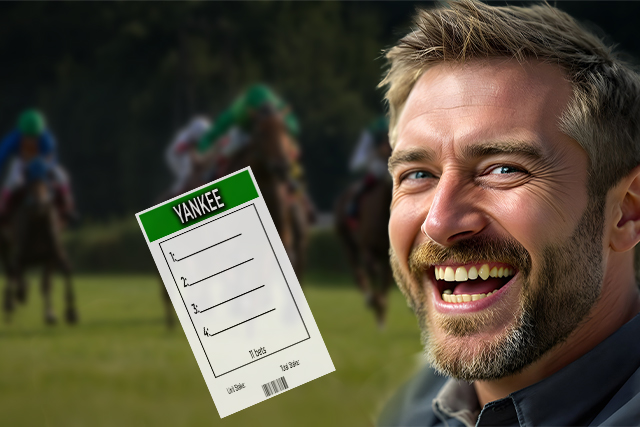Is a Yankee Bet Worth the Risk? Pros, Cons, and Winning Tips for Savvy Punters
By Stuart Ward, 6th January 2025

You feel lucky; you have spent time studying and have a handful of confident selections. But you want to cover your losses should one or two not go your way.
So you walk with purpose into the betting shop. You grab a betting slip and a pen, then, with optimism, scribble your bet. You hand your slip and stake money to the cashier, knowing you have multiple chances of winning.
Sounds like a dream, right? Well, that is the possibility that a Yankee bet can offer.
But is this intriguing wager a hidden gem for savvy punters? Or is it another way for the bookmakers to suck you in while stacking the odds in their favour?
Before you dive headfirst into this exciting punt, we'll uncover the inner workings. And we'll consider its pros and cons for the bookmaker and, of greater significance, for us, the punters.
But first:
What is a Yankee bet?

If you've visited a betting shop or the betting ring at a racecourse, you have likely heard the term. But fear not if it still seems like a strange language because we're about to break everything down.
A Yankee is a multiple bet that requires four selections in four separate events. It consists of six doubles, four trebles, and a fourfold, giving eleven bets.
As you know, this website is all about horse racing. So your wager must include four horses to win four separate races. And your punt would equate to the above-mentioned multiple bets.
How much does a Yankee bet cost?
Once you have decided on your initial unit stake, multiply that by eleven. The reason is that a Yankee consists of a total of eleven bets.
So, as an example:
A 50p Yankee would cost £5.50.
That is a unit stake of 50p multiplied by eleven bets, a total stake of £5.50.
How do non-runners affect a Yankee?
Should you have a non-runner, all eleven bets will still stand. However, affected individual wagers will move down a level.
So, the fourfold becomes a treble, and the affected trebles turn into doubles. All doubles that include the non-runner settle as singles.
The above-described process applies should you have two non-runners. But the double bet with both non-runners is void. That means the bookmaker will return your unit stake on that individual wager.
And if you are unlucky enough to have four non-runners, the bookmaker will return your total stake.
How many winners do you need in a Yankee?
We have now established that a Yankee consists of doubles and upwards. So, to guarantee a return, you will need at least two selections to win.
Now, that doesn't mean you will make a profit. It all depends on the odds of the winning selections.
But it does mean you will cover some of your losses should your other selections lose.
Of course, should you pick four winning selections, your returns can be significant.
Is a Yankee worth it?
That's the big question. A starting point would be to consider the pros and cons.
Pros
Offers the potential for significant returns, especially for achieving four winning selections.
It may cover your losses or, at least, some of them, should you have one or two losers.
It provides a thrill and excitement over four races (or events). Watching your potential returns increase can be nerve-wracking.
Cons
Increased total stakes.
You must have at least two winners to secure a return.
It can be complex for beginners.
Requires an expert selection process for long-term profits.
Does the Yankee favour the punter or the bookmaker?
It's a bit of a balancing act. On the one hand, like all multiple bets, it offers the potential for significant returns. And that is what draws punters to this type of wager.
On the other hand, to get those rewards, you will need outstanding skills in picking winners. You must have a firm understanding of form and the intricacies of horse racing.
And that applies to wagering on other sports, too, if multiples are your preferred modus operandi.
In my experience working for the bookmaker, I never witnessed many big payouts on Yankees. Yes, they do happen. But from what I have seen, they are few and far between.
Let's face it. If you end up with only two winners, they need combined odds of 10/1 to break even and get your stake money back. That's the challenge you will face.
Final Thoughts
Theoretical probabilities can provide a foundation. However, making a Yankee bet successful depends on having an accurate selection process.
You'll need an in-depth understanding of the races or the sports you are betting on to win money.
As I have said, the bookmakers love punters who place multiple bets. One losing selection begins to swing the pendulum in their favour.
You can counter that pendulum and swing it back toward you. You can gain an edge over the bookmaker if you understand form.
Build knowledge of ratings, conditions, and the variables that affect a horse race. Only then can you significantly increase your winning strike rate.
You can get the required knowledge and skills to consistently find winners by clicking here.


